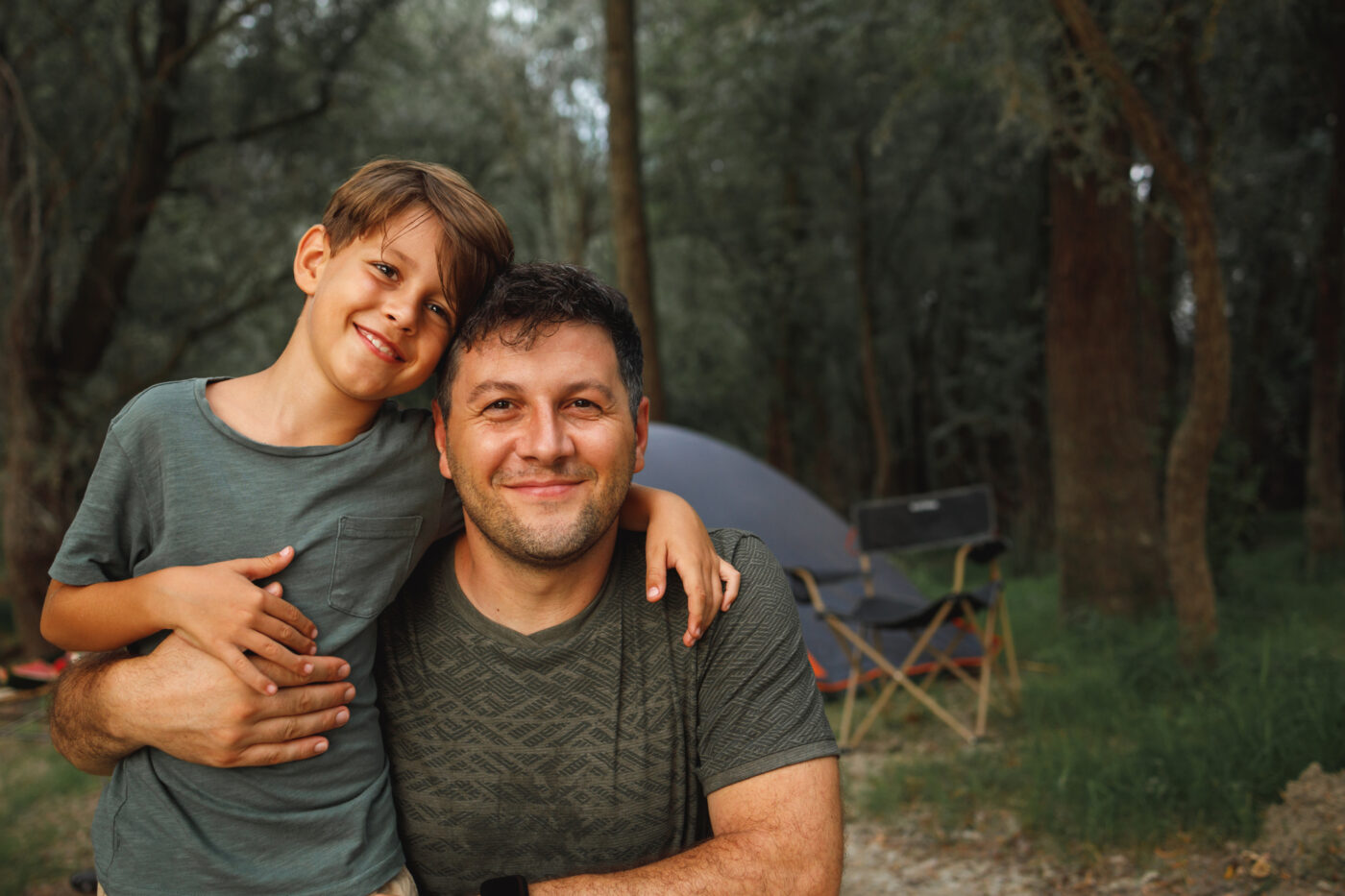In my mid-30s, working as a financial advisor, I had a life-changing epiphany. When my boss walked in, I buried my face in the computer screen. Seeing him caused me anxiety, and I hoped I’d go unnoticed. At that moment, I realized that was how I always responded to bosses. I thought to myself, Why am I hiding? Through some honest soul searching, I came to the conclusion that I didn’t feel like a fully grown man nor did I know how to become one. Physically, I may have been 30-something, but internally, I felt like I was 12—and I was afraid my bosses would find out. That fear kept me from being comfortable with my true self. Instead, I would try to play the part I thought they wanted in order to mask what was going on inside. I would always be in awe of the people who didn’t struggle with this, people who seemed to have the keys to a kingdom I couldn’t access.
Sons need their dads to show them how to be a man. My dad was amazing in so many ways. He taught me a lot. I loved him, he loved me, and I wouldn’t have wanted anyone else as a father. I felt the way I did for many reasons that had nothing to do with him. However, somewhere along the way, I missed some of what would have felt like becoming a man. As I have studied what I missed, I discovered some things that are important in teaching a son how to become a man. Here are 5 of them.
Finding His Identity
Unfortunately, the world communicates to our kids that they need to be a certain type or way to be “successful” or perhaps even “acceptable.” When they believe it, they conform and/or perform for approval. In other words, they hide their true selves. If they have been rejected by an authority or their peers, they will bury it even more. Our boys need a strong understanding of who they are as individuals. Until our sons are able to authentically be themselves, they will remain in perpetual childhood. Bringing a boy into manhood involves nurturing his real self to the surface. A man is not made; he emerges. We draw him out with unconditional love, listening, encouragement, and gentle coaching.
Discovering His Belonging
Although being independent is often lifted up as a virtue, we were never meant to live that way. We were meant to be connected to one another through love and belonging. It is a major factor in our maturation process. Our sons need to know they are worthy of belonging, otherwise they will never feel good enough. They will always feel as though all others are a step ahead. It will inhibit their ability to be vulnerable, which leads to stunted emotional growth. A father is one of the most powerful factors in whether a son feels worthy. Our boys need our presence and approval. Merely spending attentive time with him verifies his dignity. Affirm his value so he knows it’s not based on his accomplishments but on who he is.
Developing His Voice
There’s a line in Walt Whitman’s poem “O Me! O Life!” that says, “That the powerful play goes on, and you may contribute a verse.” Our sons have gifts and talents. They have wisdom gained through their own experience, a story to tell. They have powerful things to offer the world. A child shrinks into his parents’ arms (or a computer screen), but a man stands up and contributes his verse. Help him find his gifting by encouraging him to try new things. Give him room to toil and let him know it’s OK to fail. Give him space to find his voice. Don’t sculpt it for him or be quick to shoot it down. Affirm it instead.
Embracing His Responsibilities
One of the most important parts of becoming a man is taking responsibility. Grown men take responsibility for their actions, for their actions’ consequences, and for how they impact the people around us. We also need to take responsibility to care for the people in our lives that we love. As I said, our sons have been given abilities and wisdom, and we have a responsibility to give them away to build up those around us and our communities.
Having a Ceremony
I believe this is something our culture has lost when bringing boys into manhood. There are still cultures that do it, but they are declining. Have a ceremony that communicates he has gone from a boy to a man. We have weddings and graduations. This is equally important. Here is an example of a blessing ceremony.
Sound off: What would you teach your son about how to become a man?











Huddle up with your son and ask, “What do you think it means to be a man?”